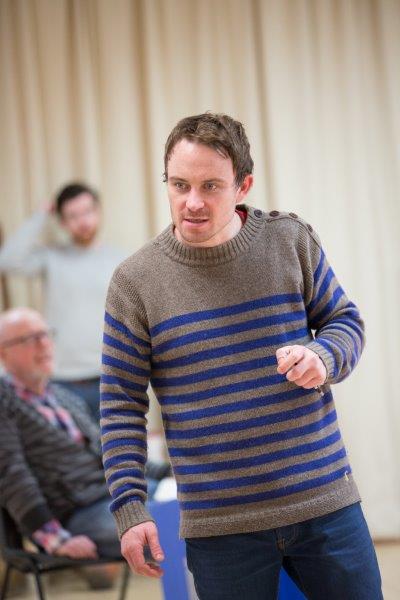I am a morning person, up at seven o’clock and off for a swim. I will eat a banana before I go and then Dorset cereal muesli – my favourite – with a Berroca and too much coffee, strong and black.
I try to be at my desk for 9am so I have time for half hour or so admin time, checking my emails. At 10 o’clock I start rehearsals with a huge coffee in my hand. I work an hour and 20 minutes a time with a 20 minute break between the two morning and afternoon sessions.
We break for lunch but I very rarely get a proper break because as Artistic Director of Paines Plough I have a company to run as well as a show to rehearse. Lunch will be meetings, phone calls or interviews, stuff like that.
I used to work until six until I did a show that forced me to stop at 5pm. I was nervous at first about it and worried about getting the work done. Then I realised I’d never done any good work between 5 and 6 in the rehearsal room, so now I feel doing those four sessions I can plan really carefully what I can achieve in the session, work really hard and then stop.
What we do in rehearsals depends on whereabouts in the schedule we are. In the first week I tend to work round a table; my approach to text is informed by the fact I’m an English graduate so I take quite an analytical, textual approach to a play. Some actors love it, some hate it because they want to get up and get physical.
We really interrogate the text. I set research topics so everyone gets a little bit of homework! Translations is good – it’s set in 1833 and we know very little about it so we’ve been finding out loads of things. What was money? How much was a pint of milk? What was diet like? What was transport like? I set them a little task and they report back in the morning. Then we get bigger research projects; for example, Daniel O’Connell is mentioned in the play and one of the actors researched his life from being an agitator to becoming the first Catholic MP at the age of 29; another was set the project of researching Brian Friel.
In week two of rehearsals I’m blocking – not listening so much to the actions but looking at where they’re standing so they’re free to play around. It’s not about how they deliver the text; it’s about me concentrating on the shape. Then in the third week I start to refine: listening to what they’re saying; in the fourth week we will be running, putting together sections or the whole play, fine tuning and finessing. In week five I’m in Tech – that’s when I couldn’t be happier.
We finish at about 10.30pm. It’s full on and even then we decamp to the pub and talk about how the day has gone, what we need to work on and what we need to improve; for example, do we need to add more lights, more sounds, a change of costume?
Dinner is early! We try to get a proper meal before our evening session which is about three hours earlier than we would normally do. If we don’t do that we’ll end up in the kebab house!
I’m here until press night. Previews are exciting because we’ll have our first audience in and that changes the dynamic. You only really know what the play is like in front of an audience. On Friday, we’ll be working on everyone’s notes. The Artistic Director of the theatre will come and see it [in this case Daniel Evans of Sheffield Theatres] and have really useful notes. It’s really valuable for another director to have an outside eye on my work because they know their own theatre really well. The Crucible is incredibly inspiring and Daniel knows this space and his audience much better than I do.
After the first preview we’ll work on changes and then Monday is press night. And yes, I do read my reviews! I care about them deeply. You can tell from an audience response whether you’ve done a good job. You can feel it – there’s a quality of silence, a quality of listening and when you hear that you can say, ‘Yes we’ve done our job’. We’re telling a story and if everyone is listening we’re telling it well.
Translations is part of the Brian Friel season, (Rose Theatre Kingston, English Touring Theatre and Sheffield Theatres) which runs at Sheffield Theatres until March 8. The other plays are Afterplay (dir Róisín McBrinn) and Wonderful Tennessee (dir Paul Miller). The tour of Translations runs from March 11 until May 3 and will visit Cambridge, Exeter, Newcastle, Oxford, Ipswich and the Rose Theatre Kingston. James is currently in rehearsals for Hopelessly Devoted by Kate Tempest which is on tour until April. Visit www.painesplough.com



